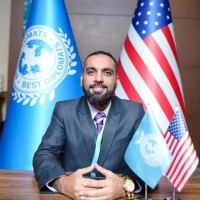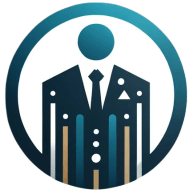13 Ways to Build Trust and Rapport With Executive Coaching Clients
In the high-stakes world of executive coaching, building trust and rapport is paramount. Insights from a CHRO and a Leadership Coach offer invaluable guidance on this crucial topic. Kickstarting the conversation, a CHRO emphasizes the importance of leveraging credibility and shared experience. Rounding off with practical wisdom, a Leadership Coach highlights the necessity of embracing curiosity and assertiveness, among thirteen expert insights in total.
- Leverage Credibility and Shared Experience
- Embrace Curiosity and Assertiveness
- Connect on Professional and Personal Levels
- Ensure Confidentiality and Demonstrate Empathy
- Build Personal Connection First
- Deliver Quick, Tangible Value
- Conduct a Discovery Session
- Guide Clients Through Authentic Experiences
- Be Honest and Generous
- Stay Curious and Share Vulnerabilities
- Understand Clients' Personal Values
- Start with Clear Contracting
- Prioritize Active Listening and Empathy
Leverage Credibility and Shared Experience
Executives vet their vendors. They expect service providers to be competent in their fields. But knowing how to do something isn't nearly enough. The landscape is littered with coaches who are experts in their craft.
Initial rapport and long-term trust spring from credibility and shared experience. As a fellow C-suite executive, I know firsthand what my clients face. The ability to discuss topics such as board presentations, organizational expansions and contractions, acquisitions, culture change, and global communication as peers will raise the relationship from coach to trusted advisor.
Remember, executives often feel alone at the top. If you've been there and can supplement traditional coaching with real-world insights that add value, you'll quiet the loneliness factor and develop a true partnership.
Embrace Curiosity and Assertiveness
Curiosity is a vital element in building strong, authentic relationships. When we focus on controlling the outcome or steering the conversation toward a predetermined goal, we inadvertently create barriers to trust and rapport. This rigid approach limits flexibility, making it harder to truly understand the other person's needs.
In contrast, approaching conversations with genuine curiosity and assertiveness allows for mutual exchange. You can express your needs and intentions while allowing the client to share theirs. By listening openly, without clinging to a specific agenda, you can better adapt to their communication style. Letting go of expectations encourages trust, as you can adjust naturally to the flow of the conversation and connect more deeply.

Connect on Professional and Personal Levels
As an executive coach for over two decades, I have learned many lessons when it comes to building trust and rapport with my executive clients. One essential element is finding a way to connect on both a professional and personal level that the client can easily relate to.
In my case, I was a CEO/CCO/CMO/CDMO for approximately 15 years in addition to being an executive coach. This means I have sat in their chair and understand what it takes to tackle the challenges my clients face on a daily basis. I also relate to clients on a personal level, whether through our shared experiences due to geography, children, religion, or other topics.

Ensure Confidentiality and Demonstrate Empathy
Building trust and rapport with executive-coaching clients is essential for a successful relationship. I achieve this by actively listening, demonstrating empathy, ensuring confidentiality, being honest, and treating clients with respect. A strong foundation of trust is crucial, built through consistent, reliable interactions and a commitment to confidentiality.

Build Personal Connection First
The coaching relationship is built upon having a personal connection first. I spend portions of the first few calls asking questions about each client's interests, passions, and life outside of their professional role, as well as sharing some of my own personal background and interests so that we are both investing in the relationship. I also speak very directly about confidentiality and boundaries in the coaching relationship and try to address any hesitations or concerns head-on from the start.

Deliver Quick, Tangible Value
When building trust and rapport with executive-coaching clients, my approach is centered on transparency and active listening. I make it a priority to understand their challenges, goals, and concerns before offering any insights or advice. This creates a collaborative environment where they feel heard and respected.
One essential element in establishing a strong foundation is delivering quick, tangible value. By providing early wins or actionable advice that leads to measurable results, I demonstrate credibility and competence. This helps clients see that I am not just about theory, but practical and results-driven strategies. Trust is built when they see real impact from the start.
Conduct a Discovery Session
When engaging with a new client, establishing mutual trust is essential to achieving the best-possible outcomes. Prior to beginning the formal coaching process, I conduct a discovery session where we can both get to know one another. This sets the stage for a more personalized and impactful coaching experience, where the client takes the lead.
From the outset, I emphasize professionalism and respect, treating each client with the same regard as if they were the President of the United States. Regardless of their background, beliefs, or demographics, I ensure that my words and actions reflect the highest standards of respect and consideration.
My approach is grounded in three key pillars of trust: competency, reliability, and good intention. By upholding these values in every interaction, I foster an environment of trust that enables my clients to feel secure and supported throughout our journey together.
-Chandler Getzinger
Eminent Coaching
Guide Clients Through Authentic Experiences
One of the quickest ways I've known to build trust with my clients has been taking them out in the ocean as part of their leadership development. The act of guiding someone through a force as powerful as the ocean builds a level of trust that would otherwise take 3 months doing regular coaching on land or on the phone. When I'm in my element, I'm my most authentic. And that authenticity really builds trust.
People can feel your intentions and can sense when you are being inauthentic. Being passionate about your craft, focusing on evoking transformation for your client, and finding a sweet spot of how much to push them builds trust.
I also make sure my bio is written in my authentic voice so I can connect with people genuinely offline too. I have extensive testimonials on my website from other clients so that if leaders ever need further reassurance, they can go there and read more.

Be Honest and Generous
In any type of relationship, authenticity is key to building trust and rapport. You have to be as honest as you can be. And I always want to meet clients with generosity. As their coach, I want to be fiercely on their side and truly want the best for them. I really believe if our heart is in that generous space, coaching clients will give us the permission we need to challenge them, and clients often tell me it's the thoughtful challenge that gets them to new perspectives or ideas.

Stay Curious and Share Vulnerabilities
Connection between the executive coach and the client is essential to quickly and tangibly move the client toward their goals. Connection can happen in many ways: exchanging information about one another, having similar experiences, or having similar affinities can also be helpful. (“You like English Premier League football? So do I!”). As a coach, I like to stay curious about all that my client is sharing with me. As they feel heard and validated, we have a much better chance of developing rapport and trust. Vulnerability plays into trust-building as well. Sharing something that I may not be proud of but makes me more human can provide a common, shared sense of the human experience.
Trust means different things to different people. Going into an engagement, I may not know if my client's anchor belief is that trust is given or if it is earned. Asking about their definition of trust is a great place to start. While it should not need to be stated, my doing what I say I will do and following up with any action items builds trust with the client. Listening is a profound gift that executive coaches can give to their clients. It's respectful and impactful, and it is what we are being paid to do in service of our clients.
By building the foundation of trust, we can partner with our clients to fully understand their needs and their goals. It's through that trusting partnership that those goals get accomplished.
Understand Clients' Personal Values
It's important to understand clients on a personal level, diving into what is driving them to want executive coaching. What is really at stake for them, and how does it connect with their personal values?
Like most things in life, trust is immensely important. Take a genuine interest in someone to find out their 'why,' and authentically reflect your desire to help them achieve their target outcome.
Additionally, reflecting similar past work experience (if applicable) can help them see you may understand their work environment or situation. However, possibly more than anything else, they need to sense that you genuinely care.

Start with Clear Contracting
Trust-building starts with good contracting. Be clear about roles (i.e., you, the client, and any third party such as the client's boss or HR), expectations, and commitments. Invite the client to voice their questions and concerns, and respond honestly. Ask what the client needs to feel "safe enough" to be uncomfortable from time to time as part of their coaching/learning journey. Doing these things begins to demonstrate you have your client's best interests in mind.
Prioritize Active Listening and Empathy
Hi,
I'm Fawad Langah, a Director General at Best Diplomats organization specializing in leadership, business, global affairs, and international relations. With years of experience writing on these topics, I can provide valuable insights to help navigate complex issues with clarity and confidence.
Here is my answer:
Building trust and rapport with executive-coaching clients is essential for fostering a productive coaching relationship. My approach starts with active listening. I prioritize creating a safe, open environment where clients feel comfortable sharing their thoughts and challenges. This involves asking thoughtful questions and genuinely valuing their perspectives.
One essential element in establishing a strong foundation is empathy. I can better support their goals and challenges by demonstrating a genuine understanding of my clients' situations. I strive to connect with them, acknowledging their unique experiences and emotions. This empathetic approach helps clients feel heard and fosters a deeper sense of connection and trust.
Additionally, I maintain transparency about the coaching process and what clients can expect. Setting clear objectives and regularly checking progress reinforces accountability and keeps the coaching journey focused and relevant.
Ultimately, when clients feel understood and valued, they are more likely to engage fully in the coaching process. This strong foundation of trust allows for more meaningful conversations and promotes personal and professional growth, leading to successful outcomes for the client and the organization.
I hope my response proves helpful! Feel free to reach out if you have any questions or need additional insights. And, of course, feel free to adjust my answer to suit your style and tone.
Best regards,
Fawad Langah
My Website: https://bestdiplomats.org/
Email: fawad.langah@bestdiplomats.org





